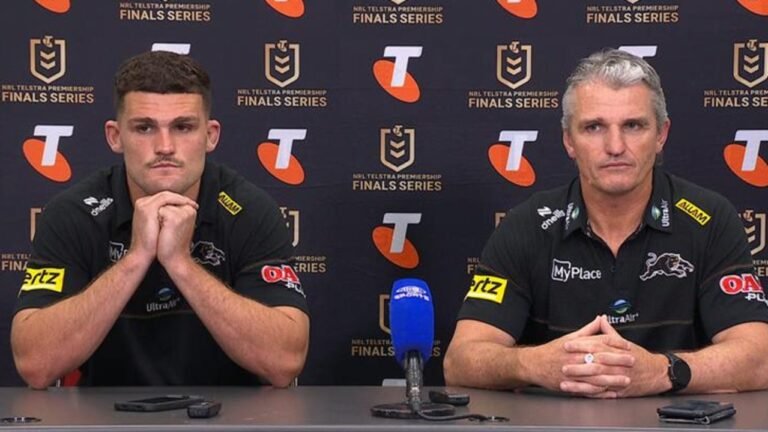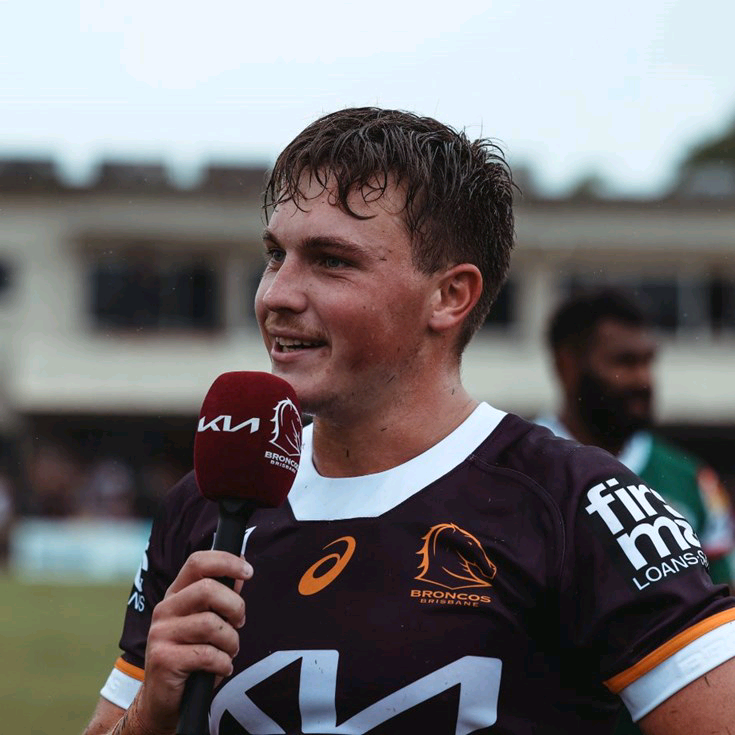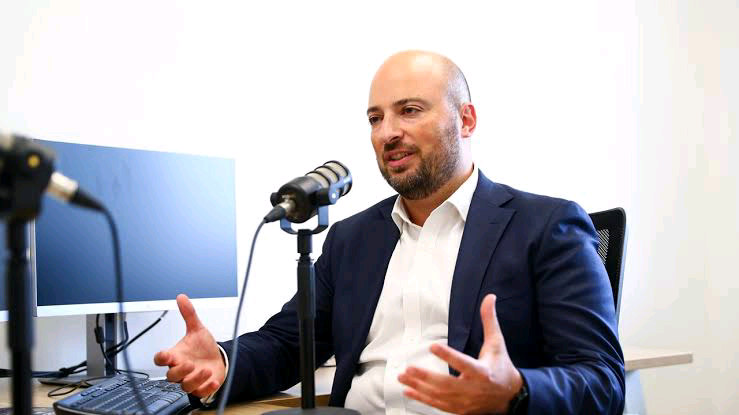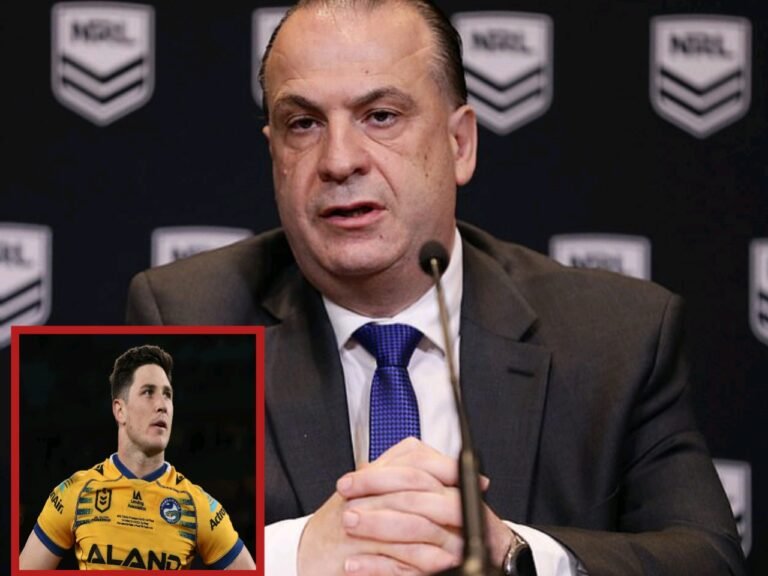
ENOUGH IS ENOUGH: “EXPECTED BEHAVIOUR MUST REFLECT ON AND OFF THE FIELD” — Chairman of the ARL Commission Peter V’landys AM imposes a harsh penalty on the Parramatta Eels star halfback Mitchell Moses for drug intake
In a striking move aimed at reinforcing discipline and integrity in rugby league, Peter V’landys AM, Chairman of the Australian Rugby League Commission (ARLC), has stepped in to impose a severe penalty on Mitchell Moses — halfback of the Parramatta Eels — following a confirmed drug-intake incident. The decision sends a clear signal: expected behaviour must extend beyond tactics and matchday performances to off-field conduct.
Sources within rugby league circles confirm that Moses has been found to have violated the league’s strict substance rules. While the club and the league have not yet released full technical details of the breach, it is understood that the violation relates to non-performance enhancing drug use, prompting V’landys to respond with a headline-grabbing suspension and a public rebuke. The specific penalty has been described as an “extensive suspension” from playing duties, along with fines and mandatory educational programs.
Speaking publicly on the decision, V’landys emphasised the broader implications: “In our game, the standard is absolute — on the field, and off the field. When a senior player, one of the faces of his club and the competition, breaches that code, we must act swiftly and strongly. Enough is enough.” The chairman added: “The expectation of behaviour does not switch off when the whistle does. Our fans, stakeholders and young players deserve nothing less.”
For the Eels, the blow is significant. Moses has been a central figure in the club’s attacking play and leadership group, and his absence will impact team structure and morale. The club, while expressing disappointment, issued a statement committing to full cooperation with the ARLC and reaffirming its own zero-tolerance stance. In its release, the Eels said: “We acknowledge the matter, accept the ARLC’s jurisdiction, and are working internally to support all players’ education and well-being.”
Within NRL-affiliated circles, the penalty is being viewed as one of the more robust responses to an off-field incident in recent years. The message is clear: regardless of talent or status, players will face consequences not just for actions during games but for those taken off the field that reflect on the game’s integrity. V’landys’s reference to the dual nature of professional behaviour speaks to an evolving governance mindset in rugby league — one that holds out-of-play conduct as equally important to Ruck counts and try assists.
Reaction among fans and commentators has been mixed but largely supportive of the tough stance. Many argue that unless senior players are held accountable, the credibility of the sport and the clubs who compete will be eroded. Some Eels supporters, however, lament the timing, noting the team’s recent ups and downs and the reliance on Moses’s playmaking ability. Still, the broader community message is that no one is above the sport’s standards.
In the days ahead, all eyes will be on how Moses responds — both in front of the media and in the club environment. Will he embrace the required educational components, respect the suspension, and come back reinvigorated? Will the Eels restructure around his absence and maintain competitive form? And will the wider NRL community see this penalty as a turning point in off-field discipline?
For now, Peter V’landys has drawn a line firmly in the sand: expected behaviour must reflect on and off the field. And when it doesn’t, the consequences will be swift, public and uncompromising.



